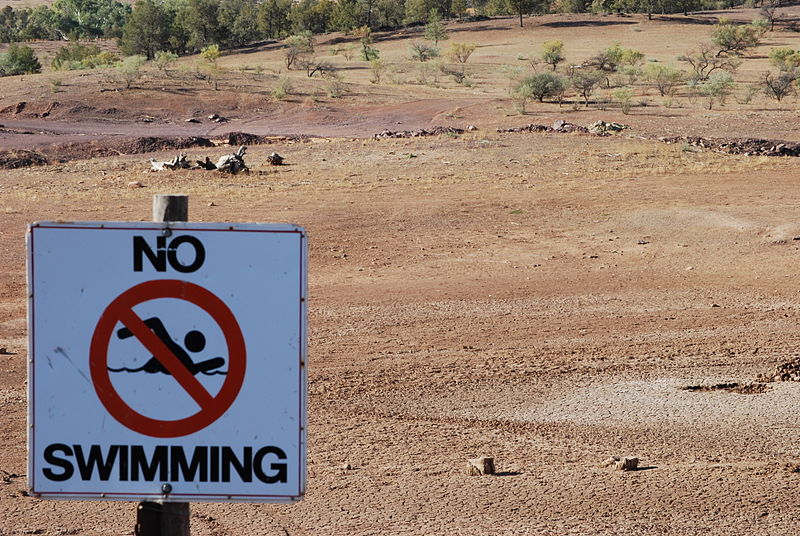
The beat
Queensland stadiums implement facial recognition system
As the match that stops (part of) a nation kicked off last night, attendees at Brisbane’s Suncorp Stadium may not have been aware of the new facial recognition technology now in use at sports grounds around Queensland. A spokesperson for Queensland Stadiums has said that the software is being used to identify patterns and anomalies in crowd behaviour. This comes after police in Queensland struggled to use facial recognition systems effectively during the Gold Coast Commonwealth Games in 2018.
Japan mandates recording of interrogations
Changes to Japanese criminal procedure laws now mandate video-recording of police interrogations of suspects in cases involving deaths, corporate crime or people with mental impairment. The measure was introduced in an effort to increase the transparency of Japan’s criminal justice system, particularly by preventing forced or false confessions.
Tesla charged up by Victoria Police
Police in Victoria have purchased a Tesla Model X to explore the feasibility of integrating electric cars into its fleet. The fuel-efficient high-performance car has been transformed into a highway patrol vehicle and will be used across the state. Recently, the Swiss canton of St Gallen purchased 13 Hyundai Kona electric vehicles and are integrating them into their fleet.
Checkpoint
Sri Lankan asylum seekers intercepted
The Australian Border Force has intercepted a boat carrying 20 Sri Lankan asylum seekers. The passengers were detained on Christmas Island before being deported to Sri Lanka after their asylum claims were rejected. Radio host Ben Fordham reported that Home Affairs was investigating claims that up to six asylum-seeker boats might have been turned back after attempting to reach Australia.
Bomb planted under a car in Belfast
Police in Northern Ireland have launched a cross-border investigation after a bomb was placed under an officer’s car. Detectives are hoping to trace a Dublin-registered green Skoda Octavia after a ‘sophisticated’ device was found under a vehicle in eastern Belfast. Police suspect that ‘dissident republicans’ are responsible, and they are believed to have been working with counterparts in the Republic of Ireland.
Bridge construction between China and Russia
Workers in China have been constructing a highway bridge over the Heilongjiang River, which separates the Chinese city of Heihe from the Russian city of Blagoveshchensk. The bridge is part of a 19.9-kilometre highway project that’s the first of its kind between the two countries, and is expected to accommodate 3 million tonnes of cargo and 1.4 million people annually. Meanwhile, Chinese President Xi Jinping has held talks with Russian President Vladimir Putin on the countries’ economic ties at the St Petersburg International Economic Forum.
CT scan
London Bridge inquest finds key information not passed on
An inquest into the June 2017 London Bridge terror attack has heard that there were ‘opportunities galore’ to deduce that the three assailants were planning an attack. The brother-in-law of terrorist Khuram Butt reported him to an anti-terror hotline, but that information was not passed on to the MI5 or police teams that had been investigating Butt. The team was also reportedly not made aware of other key pieces of information about the attackers’ contact with each other.
First amendment may be hindering far-right investigations
Following a rise in far-right extremist attacks in the US, the New York Times has examined whether the FBI has sufficient legal powers and resources to address the threat. The FBI is grappling with the challenge posed by the first amendment to the US constitution, which prevents investigators from making arrests based on hate speech—though it’s often an early sign that an individual may be planning an attack.
Where in the world is Abu Bakr al-Bagdhadi?
An Arabic-language news site has claimed that Islamic State leader Abu Bakr al-Baghdadi is hiding in a tunnel in the Iraqi desert near the Syrian border. In a recent interview with the Guardian, Umm Sayyaf, who has been sentenced to death in Iraq for her role in IS and is the wife of a close friend of Baghdadi, confirmed that she provided CIA and Kurdish intelligence officials with details of Baghdadi’s hideouts and networks. It’s not clear if she gave information on a specific tunnel.
First responder
Climate change a ‘near- to mid-term existential threat to human civilisation’
The Breakthrough National Centre for Climate Restoration has published a policy paper which warns that climate change could become an existential threat to civilisation by 2050. It says Australia needs to mobilise resources and industry quickly on ‘an emergency basis, akin to a wartime level of response’. The policy brief follows similar conclusions made by a United Nations report in 2018, which called for urgent measures to deal with climate change.
Hawaii on alert for parasitic worm
Health authorities in Hawaii have issued a warning to visitors after three people coming from the US mainland were found to have been infected with a potentially fatal parasitic worm. The worm is normally found in rats’ lungs and in slugs and snails. But humans sometimes get infected by eating contaminated vegetables, or raw snails or slugs. The parasite can feed on human brain tissue or lodge itself in the lungs, causing permanent damage and, potentially, death.
Possible treatment for deadly Nipah virus found in Africa
Scientists working on an experimental Ebola vaccine in the Democratic Republic of Congo may have found a treatment for the Nipah virus, a deadly respiratory infection with no known cure. The first known outbreak of the virus was in Malaysia in 1998 and the most recent was in India last year. African green monkeys infected with the Nipah virus survived when they were administered remdesivir, a drug which has also been effective against Ebola. The Nipah virus is often transmitted by fruit bats and is lethal to humans in 70% of cases.

